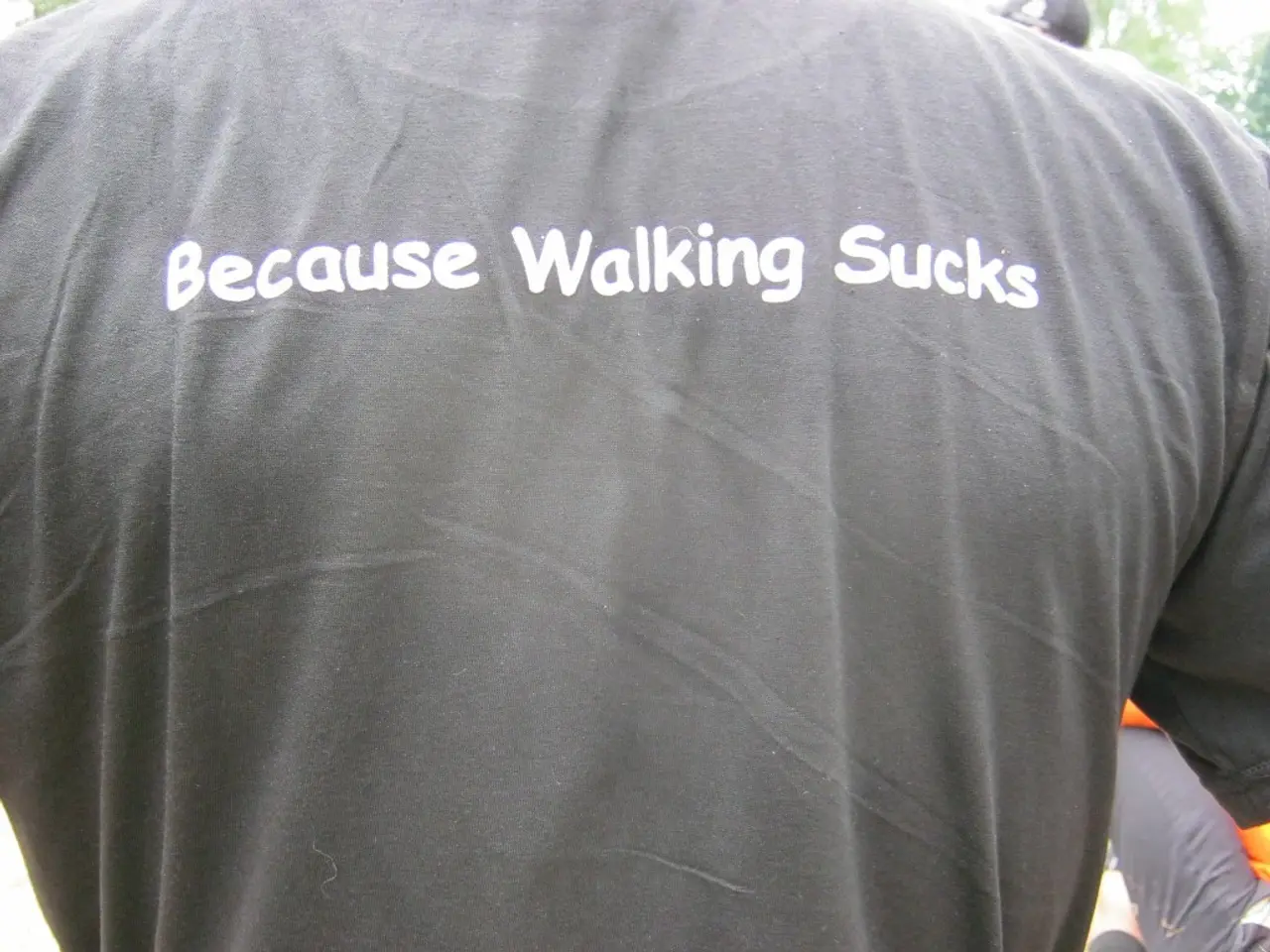The Indication of Burnout in One's Twenties Highlights Aspects of Contemporary Maturation
The Long-Term Impacts of Early Career Burnout on Young Adults
Early career burnout, a growing concern among young adults and new graduates, can have profound and long-lasting effects on an individual's physical, emotional, and mental health, as well as their professional development.
The syndrome, coined by American psychologist Herbert Freudenberger in the 1970s, is a result of prolonged stress and emotional exhaustion from overwhelming job demands, lack of support, or insufficient recognition. This condition can progress into chronic fatigue, emotional numbness, decreased problem-solving abilities, and persistent anxiety or depression.
Physically, symptoms such as headaches, gastrointestinal issues, and sleep disturbances may persist, compounding overall health decline. A study showed that the prevalence of early career burnout one, two, and three years after graduation was 127 (5.2%), 131 (5.4%), and 114 (4.7%), respectively.
Professionally, early burnout leads to disengagement, reduced job performance, and diminished motivation to seek growth opportunities, increasing the likelihood of job hunting or leaving their career fields altogether. Burned-out employees tend to "check out" mentally and reduce effort beyond basic job requirements, which negatively affects career progression and growth.
Mental health impacts are severe when burnout progresses unchecked—many reach a stage where symptoms become habitual, deeply embedded, and harder to reverse, causing lasting emotional instability, irritability, and reduced work engagement. This stage may also exacerbate feelings of helplessness and detachment, reducing overall life satisfaction and productivity.
Burnout has gradually invaded all domains and aspects of an individual's life, not just workplaces. Experiencing remarkable changes in sleep and diet patterns, loss of interest and enthusiasm in hobbies and daily activities, constant anxiety about task performance, even when away from said task, and a negative and cynical attitude towards one's work are all signs of burnout.
Loneliness and a feeling of detachment from others are also common symptoms. Loss of confidence and motivation often results in feelings of helplessness and extreme self-doubt.
The World Health Organization defines burnout as a syndrome resulting from chronic workplace stress that has not been successfully managed. Recognizing the first signs of emotional burnout is crucial to prevent its long-term effects. Early intervention can help individuals reclaim their energy, enthusiasm, and overall well-being.
Heavy workload, unrealistic job demands and expectations, lack of recognition, uncertainty, negative work environment, poor diet and sleep, social support, hustle culture, coping mechanisms, academic pressure, financial pressure, lack of guidance, social media comparison, perfectionism, pessimism, and lack of control can all contribute to early career burnout. It is essential for employers, educators, and individuals themselves to be aware of these factors and take steps to mitigate their impact.
In summary, burnout experienced early in a young adult’s career can produce long-lasting psychological and physical health challenges, impair career development, and increase turnover intentions, potentially shaping a more difficult employment trajectory and overall reduced well-being.
- The long-term impacts of early career burnout extend beyond the workplace, affecting an individual's health-and-wellness, mental-health, and education-and-self-development.
- Science has shown that early career burnout can lead to decreased problem-solving abilities, persistent anxiety or depression, and even chronic fatigue, all of which hinder a person's career-development.
- Employers, educators, and individuals themselves should be aware of factors contributing to early career burnout, such as heavy workload, unrealistic expectations, and lack of support, to mitigate their impact and promote workplace-wellness and overall health-and-wellness.




